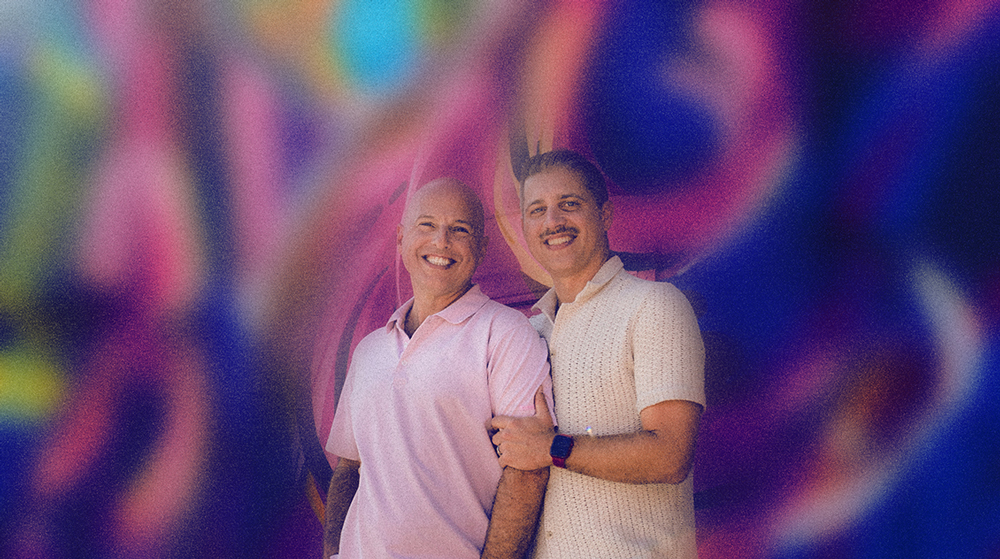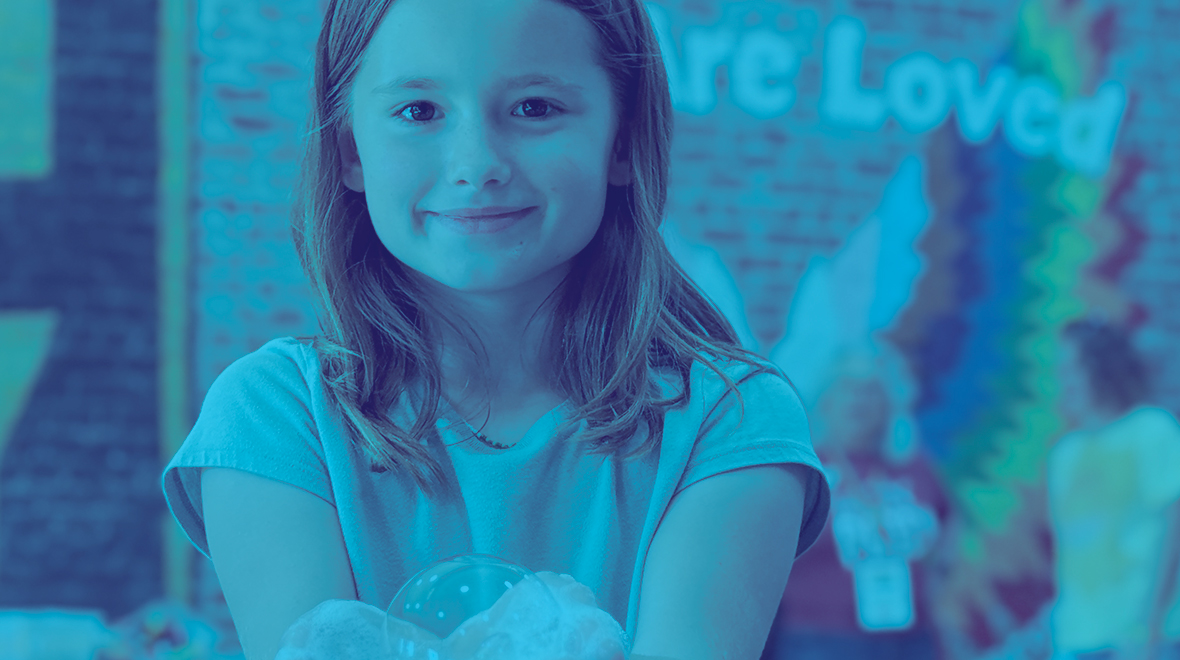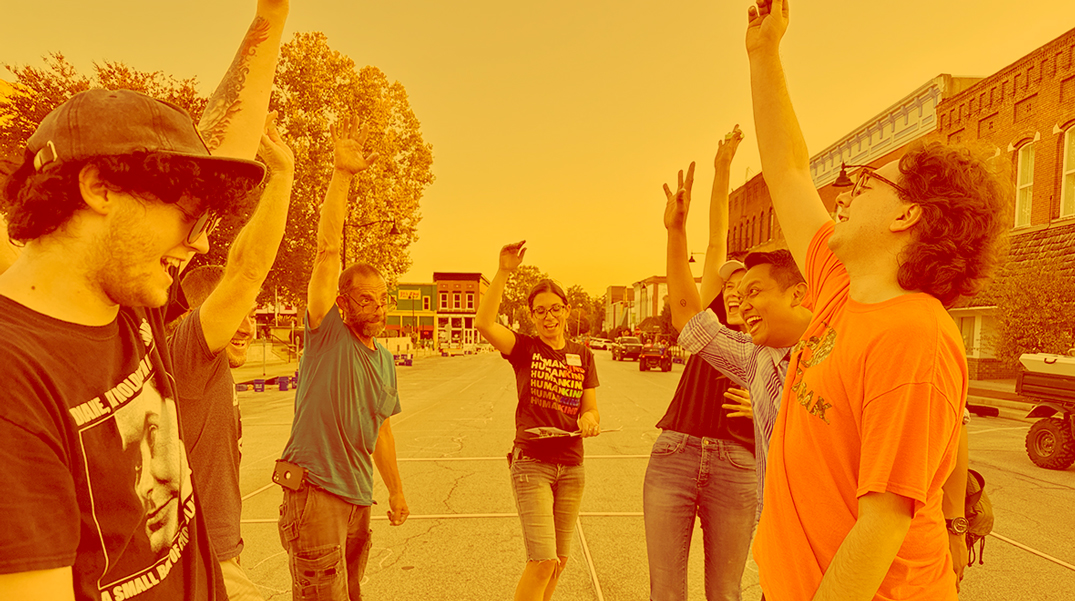
Math Ambassadors: Jonathan Balash from Spencer Pride
For Jonathan Balash, science and math programming was not a road he thought he’d be walking in his role as president and programming director for Spencer Pride in Spencer, Indiana. And who could blame him? People don’t typically associate LGBTQ resource centers with STEM education. But after Spencer Pride hosted a successful viewing party and eclipse-themed drag show to celebrate the April 2024 total solar eclipse that passed through the town, the possibility of doing sustained programming around math and science seemed not just possible but an exciting opportunity.
It would have been easy for Balash and Spencer Pride to let their foray into science end after the eclipse. But as Balash puts it, “The eclipse told us there was an interest” in going further. For the next chapter of their science journey, the Spencer Pride team is tackling math.
We recently spoke with Balash about his experience so far, not just as the leader of an organization but as a parent. He discusses challenges and opportunities, bringing more people into the Spencer Pride community, math in drag and more. The transcript below has been edited for clarity and brevity.
Thanks for speaking with us, Jonathan. Can you tell us more about Spencer Pride?
We’ve been around for almost 20 years, and we are an LGBTQ-focused nonprofit in South Central Indiana. And our mission is to improve the quality of life of rural LGBTQ people here. And we do that in a variety of ways, from building allies through education and advocacy to creating safe spaces where people can be their full authentic selves.
We operate our LGBTQ community center year-round, which offers a variety of health and wellness services and 11 recurring programs. And then we have our annual Spencer Pride Festival, so we are super involved in our small rural community of 2,400 people.

How did you come to partner with a science foundation based in NYC?
So, we met some folks from the Simons Foundation at a conference run by Indiana University’s Center for Rural Engagement. We were there speaking about a documentary that we are currently participating in. And they engaged us about this possibility of the eclipse that was going to pass through Spencer, and I think at that point it was maybe about a year away.
That’s right.
And I’m a nerd [laughs], so I kind of knew there was an eclipse coming. There was an interesting opportunity that emerged when we started chatting with the folks from Simons. It could allow us to think about doing something for our community that could both help educate about and celebrate this once-in-a-lifetime opportunity to be in that path of totality, while also serving our own mission.
We want to get people into our community center to learn more about us. It gives us opportunities to engage with them, to educate, to potentially get their support, financially or otherwise. And so, for us, the exposure from the eclipse was a great opportunity. So we hosted a fantastic day of eclipse programming for the local community and all the various visitors that came in from out of town. It was exciting, and it really got our people really engaged, and it definitely delivered on connecting us to new people.
Can you talk about the science and math work you’re doing now, and why you felt it was important to continue after the eclipse?
The eclipse told us that there was an interest in this kind of thing, and that we could do it successfully. And there wasn’t any kind of feedback that this somehow was a distraction from our core mission. And in talking with the Simons Foundation, there was this question: “You’ve got all these great programs that you’re doing. Is there any way to integrate science elements in a way that feels organic?”
So I engaged with our various programming leaders and asked, “What would it look like to do more without distracting from our core mission?” That was important to both organizations.
We’ve been able to incorporate things like STEM-themed games into our Iris Youth Group. We’ve also had the opportunity to take some of our participants to places we otherwise wouldn’t have been able to afford to go. We are 100 percent volunteer-fueled, so resources are not infinite. But through the Simons relationship, we’ve been able to do things like take our Rainbow Family connection to places like the Children’s Museum of Indianapolis, which is this great nationally known children’s museum. It can be a little pricey to get into, but we were able to cover costs. We had families that had never participated in our programming before come out and join us, which was great.
And then we have Kyne, the math drag queen, who wrote the book Math in Drag.
Kyne! Another unexpected pairing — math and drag.
Yeah, if you had said to me two years ago, I would have said that it sounds like two things that you’ve pulled out of some randomized topic generator [laughs]. But we’re really excited to welcome Kyne to our Pride Festival. Again, it’s a way to welcome new people into our community and into math.

One of the things we’re trying to communicate through Infinite Sums is that math ambassadors don't necessarily have to be mathematicians, and in many cases, it’s perhaps more effective to focus on people who have a connection to their community.So I want to ask you, what is your own relationship with math like? And how do you feel about being a math ambassador?
You know, that’s an interesting question. I have always loved math, and yet it has always been a challenge for me. But I know folks who are just so good at math, it’s like their language. That’s never been me. But I’ve always found math to be fun. Well, maybe not always [laughs]. But there are certain math topics like algebra that felt like a game: What do we have to do to unlock the mystery of what x is?
My son just started seventh grade, and he’s now in pre-algebra, and he was pretty intimidated by the title. But I said to him what I said to you — that it can be a game.
You’re a math ambassador not just for the Spencer Pride community but for your son! What’s that been like?
Well, it’s always a challenge any time something comes up at school that’s new, because most of the time it’s been a few years since I’ve engaged with it. There’s this fear that if he wants to be able to talk about a subject and I’m clueless, he’s not going to want to come to me, right? Already, you’re growing up and you’re trying to demonstrate your independence — you only want to ask for help when you know you can get it, frankly. So that’s why I wanted to start with a positive frame.
For me it was hard. But maybe for him, it won’t be. We’re all different. He’s on the neurodiverse spectrum, and he may find that it is super simple. So for me, it was about making it not scary, and also making it clear that it can be fun.
And how does this compare to the math engagement you’re doing with Spencer Pride?
It’s certainly been a bit of an experiment for us. Something new and different we did this year was establishing our Math Builders program, where students could get weekly help from expert tutors. This, as with all our services, is 100 percent free.
So now we’re thinking, what does this look like going forward? Do we take it beyond the pilot? But that’s what science is about too, right? It’s about experimentation.
Totally. Has there anything specific so far that has surprised you about doing this work?
What I found interesting through our math work, is how many people I already knew who have a strong interest in math, or science more broadly. For example, when we did the eclipse, seeing our volunteers get so “nerdy” over the course of the day. We had some basic tactical things, like how to photograph the eclipse. But also, an overview of the history of Spencer, specifically through the lens of some marginalized communities. Our volunteers really were excited to be there.
And you see it come up in math, too. The fact that you can introduce some people who’ve never been interested, or who think that math is a certain thing for certain people. Like you have to have, I don’t know, a pocket protector and big nerdy glasses or something. And that’s not what math looks like. Math is also in drag, right? In the case of Kyne. Math can show up in so many ways.

Right. It’s many things.
And sometimes you just need that spark. With Rainbow Birders, we ask this question: “What was your spark bird? What made you go from passively bird-watching to using birding as a verb?” So now we’re asking, “What’s that math spark for you?”
You’re trying to help people find their “math bird.” I love that.
Right. And we hope that for some people that’s Math Builders; for some that’s Kyne; and for some people that’s one of the other activities we’ve done.
Two years ago, I would never have predicted this as a path we would be going down. But as an organization, we’re always looking for creative ways to engage with our community. And you’ve got to have an open mind to do that. There have been so many times throughout the history of Spencer Pride where I never would have expected what the next chapter was going to bring us.
I would encourage anybody else who is thinking about stepping into math to be willing to embrace some discomfort. As individuals or as organizations, if we aren’t willing to get a little uncomfortable, we’re never going to learn anything.
Thank you for your time, Jonathan.
Thanks for having me.
This interview is part of our Math Ambassadors series, which aims to highlight the diverse range of people leading math engagement work, supported by Infinite Sums.